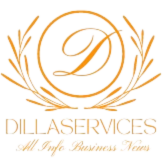
Taking the steps to continuously upgrade one’s skills and knowledge should really be a priority for professionals in all industries. The modern workplace is evolving rapidly because of factors like technological innovations, globalization, and shifting economic conditions. The experts at ProTrain.edu tell us that certification training programs are one route that professionals can take to ensure they stay up to date. Nonetheless, truly effective skill enhancement requires dedicating oneself to the concept of lifelong learning.
Cultivating a Growth Mindset
The basis of skill enhancement is having the believe that improvement is possible. Researchers have found two main mindsets that people tend to have when it comes to their talents and abilities. Those with a fixed mindset believe their skills are static and unchangeable. On the other hand, people with a growth mindset see talent and intelligence as fluid qualities that can grow with a bit of effort. Study after study has confirmed that a growth mindset better enables people to succeed in education, sports, business, and most areas of life.
Committing to Continuous Learning
Lifelong learning can be described as purposeful education that continues throughout a person’s life after formal schooling ends. While at one time it mainly consisted of pursuing hobbies or cultural enrichment, lifelong learning is now recognized as just as vital for career development. The future of work points to increased demand for human skills such as complex problem-solving, teamwork, adaptability, and interpersonal abilities. Professionals who regularly strengthen these maintain an edge. Steps like taking online courses, attending industry conferences, learning new methodologies, or achieving advanced certifications are all ways to become a continuous learner.
Leveraging Available Resources
Gone are the days when learning consisted of sitting in a classroom and depending solely on teachers. The rise of digital technologies has created limitless educational resources that allow for self-directed learning. Massive open online courses let working professionals access lectures and content from prestigious institutions. Video hosting sites have tutorials on every topic imaginable, while podcasts offer exposure to industry experts that professionals may not otherwise encounter in their daily working life. Social media platforms help networking with peers globally to exchange ideas and advice. Books, blogs, open-access journals, and more quality reference material are available thanks to the Internet.
Getting Strategic About Upskilling
Truly effective skill building really needs intention and planning. To that end, professionals should periodically conduct performance reviews and skills audits of themselves, like how organizations analyze their requirements. Identifying precise development areas lets you search out resources and training to target those weaknesses. Constructing a formal professional development plan also helps to promote accountability to actually follow through. Outline what skills you aim to gain, steps to achieve it, associated costs or time commitments, potential roadblocks, and how you will measure success.
Appreciating the Intangible Benefits
Most professionals pursue continual learning with definite career advancement in mind, such as higher salaries, promotions or new job opportunities. However, the personal enrichment lifelong learning ignites should not be understated. Learning literally changes brain structure, keeping minds agile. It can boost confidence, help people adapt better to change overall, and increase work satisfaction. Maintaining motivation throughout a long career in the face of workplace stress or burnout is another advantage. Over and above tangible metrics like pay raises or job titles, regularly upgrading your skills adds to your overall well-being and resilience.
Conclusion
Lifelong learning is essential for professionals looking to maximize their abilities and safeguard career trajectories in a climate of uncertainty and rapid change. Adopting a growth mindset about their talents, using modern educational resources, getting strategic about development areas, and appreciating subtle gains means professionals can become consistent learners. Treating continual skill enhancement not as a choice but as a reflex leads to success.
